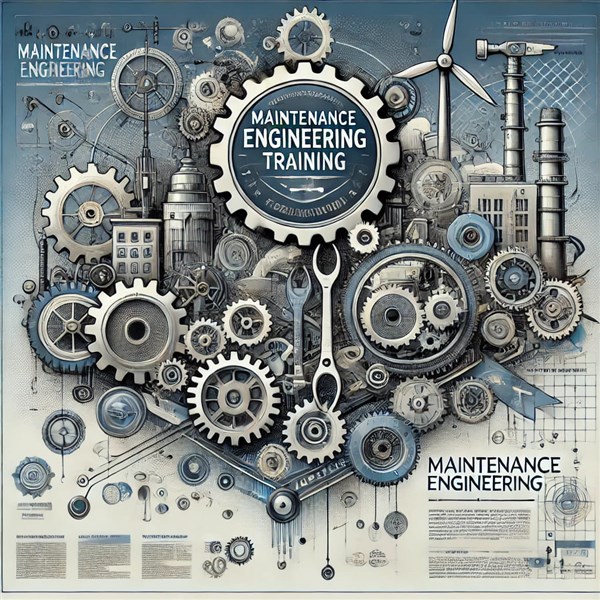Unable to find what you're searching for?
We're here to help you find it
Maintenance engineering plays a crucial role in the efficient operation of industries, ensuring that machinery and equipment function optimally with minimal downtime. From manufacturing plants and energy facilities to aviation and transportation industries, maintenance engineers are responsible for keeping operations running smoothly, reducing costs, and improving safety.
A well-trained maintenance engineering workforce is essential for industrial success, as it directly impacts productivity, asset longevity, and compliance with safety regulations. In this blog, we explore why maintenance engineering training is vital and how it contributes to industrial growth and operational excellence.
Unplanned equipment failures can lead to major financial losses and production delays. Proper maintenance engineering training ensures that professionals can:
By reducing downtime, industries can improve production rates, meet deadlines, and enhance overall efficiency.
Workplace accidents due to poorly maintained equipment can have severe consequences, including injuries, legal penalties, and financial losses. Maintenance engineering training covers:
By ensuring that maintenance engineers are well-trained, industries can minimize workplace hazards and comply with legal requirements, protecting both employees and assets.
Regular maintenance and timely repairs are key to maximizing the lifespan of industrial equipment. Maintenance engineering training helps professionals:
Extending the life of machinery reduces capital expenditures on new equipment and enhances return on investment (ROI).
Industries are rapidly adopting smart maintenance solutions powered by IoT, AI, and big data. Maintenance engineering training ensures that professionals are equipped to:
With the integration of digital technologies, industries can achieve greater efficiency, reduce costs, and enhance decision-making.
A well-trained maintenance team can significantly reduce unnecessary maintenance costs by:
By investing in maintenance engineering training, industries can lower operational costs while maintaining high performance standards.
Sustainable industrial practices are becoming a priority for businesses worldwide. Maintenance engineering training supports sustainability by:
Well-maintained equipment consumes less energy and operates with minimal environmental impact, supporting corporate sustainability goals.
The demand for skilled maintenance engineers is rising as industries expand and adopt advanced technologies. Maintenance engineering training provides professionals with:
Training and certification increase employability and help professionals secure high-paying jobs in the field.
Industries rely on predictive and preventive maintenance to avoid unexpected failures. Maintenance engineering training ensures that professionals understand:
Implementing these strategies reduces equipment failures, ensuring continuous production and operational efficiency.
Maintenance engineers often work closely with operations, production, and safety teams. Training enhances communication and teamwork by:
Better collaboration leads to faster issue resolution and improved overall plant performance.
Different industries require specialized maintenance knowledge. Maintenance engineering training can be tailored to specific sectors, including:
Specialized training ensures that professionals meet industry-specific safety, reliability, and performance standards.
Conclusion
Maintenance engineering training is a critical investment for industrial success. It enhances equipment reliability, workplace safety, cost-efficiency, and sustainability, while also preparing professionals for career growth in an evolving industrial landscape.
By implementing comprehensive maintenance training programs, businesses can improve operational efficiency, reduce downtime, and stay competitive in today’s technology-driven industries. Whether you are a company looking to upskill your workforce or an individual seeking career advancement, enrolling in a maintenance engineering course is a step toward success.
At Koenig Solutions, we provide top-quality Maintenance Engineering Training that equips learners with the skills necessary to succeed in the industrial sector. We offer flexible training modes, including online, classroom, and on-site training, to cater to the needs of our learners. Our courses are designed and delivered by industry experts, ensuring that learners gain practical knowledge and hands-on experience.

Aarav Goel has top education industry knowledge with 4 years of experience. Being a passionate blogger also does blogging on the technology niche.










